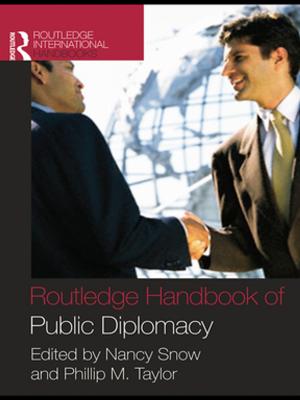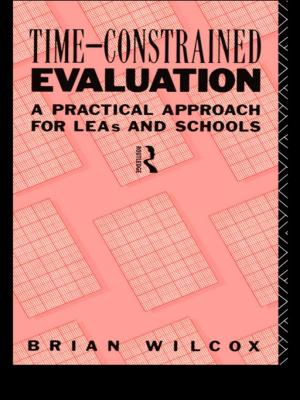Language and Politics in the United States and Canada
Myths and Realities
Nonfiction, Reference & Language, Education & Teaching, Educational Theory, Bilingual Education, Teaching| Author: | ISBN: | 9781135681043 | |
| Publisher: | Taylor and Francis | Publication: | May 1, 1998 |
| Imprint: | Routledge | Language: | English |
| Author: | |
| ISBN: | 9781135681043 |
| Publisher: | Taylor and Francis |
| Publication: | May 1, 1998 |
| Imprint: | Routledge |
| Language: | English |
This volume critically analyzes and explains the goals, processes, and effects of language policies in the United States and Canada from historical and contemporary perspectives. The focus of this book is to explore parallel and divergent developments in language policy and language rights in the two countries, especially in the past four decades, as a basis for reflection on what can be learned from one country's experience by the other. Effects of language policies and practices on majority and minority individuals and groups are evaluated. Differences in national and regional language situations in the U.S. and Canada are traced to historical and sociological, demographic, and legal factors which have sometimes been inappropriately generalized or ignored by ideologues. The point is to show that certain general principles of economics and sociology apply to the situations in both countries, but that differing notions of sovereignty, state and nation, ethnicity, pluralism, and multiculturalism have shaped attitudes and policies in significant ways. Understanding the bases for these varying attitudes and policies provides a clearer understanding of the idiosyncratic as well as more universal factors that contribute to tensions between groups and to outcomes, many of which are unintended. The volume makes clear that language matters always involve issues of culture, economics, politics, individual and group identities, and local and national histories.
The chapters provide detailed analyses on a wide range of issues at the national, state/provincial, and local levels in both countries. The chapter authors come from a variety of academic disciplines (education, geography, journalism, law, linguistics, political science, and sociology), and the findings, taken together, contribute to an evolving, interdisciplinary theory of language policy.
This volume critically analyzes and explains the goals, processes, and effects of language policies in the United States and Canada from historical and contemporary perspectives. The focus of this book is to explore parallel and divergent developments in language policy and language rights in the two countries, especially in the past four decades, as a basis for reflection on what can be learned from one country's experience by the other. Effects of language policies and practices on majority and minority individuals and groups are evaluated. Differences in national and regional language situations in the U.S. and Canada are traced to historical and sociological, demographic, and legal factors which have sometimes been inappropriately generalized or ignored by ideologues. The point is to show that certain general principles of economics and sociology apply to the situations in both countries, but that differing notions of sovereignty, state and nation, ethnicity, pluralism, and multiculturalism have shaped attitudes and policies in significant ways. Understanding the bases for these varying attitudes and policies provides a clearer understanding of the idiosyncratic as well as more universal factors that contribute to tensions between groups and to outcomes, many of which are unintended. The volume makes clear that language matters always involve issues of culture, economics, politics, individual and group identities, and local and national histories.
The chapters provide detailed analyses on a wide range of issues at the national, state/provincial, and local levels in both countries. The chapter authors come from a variety of academic disciplines (education, geography, journalism, law, linguistics, political science, and sociology), and the findings, taken together, contribute to an evolving, interdisciplinary theory of language policy.















